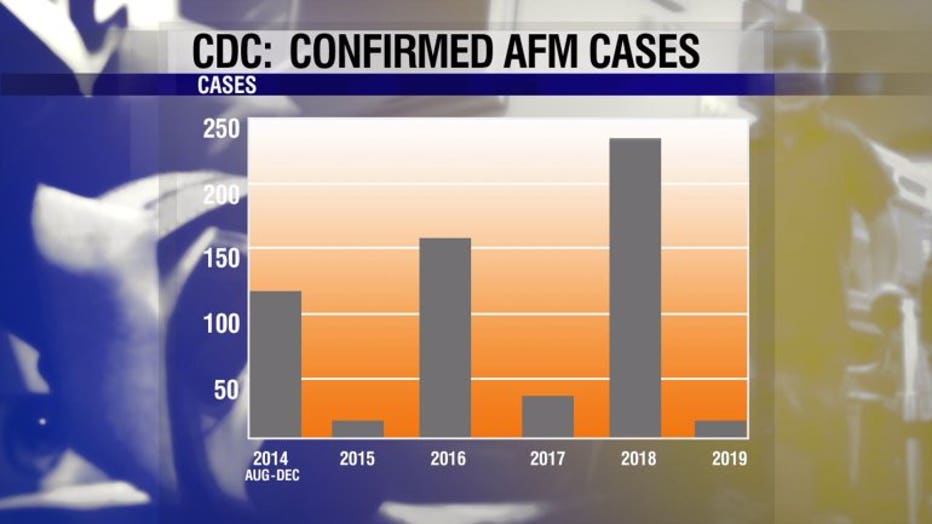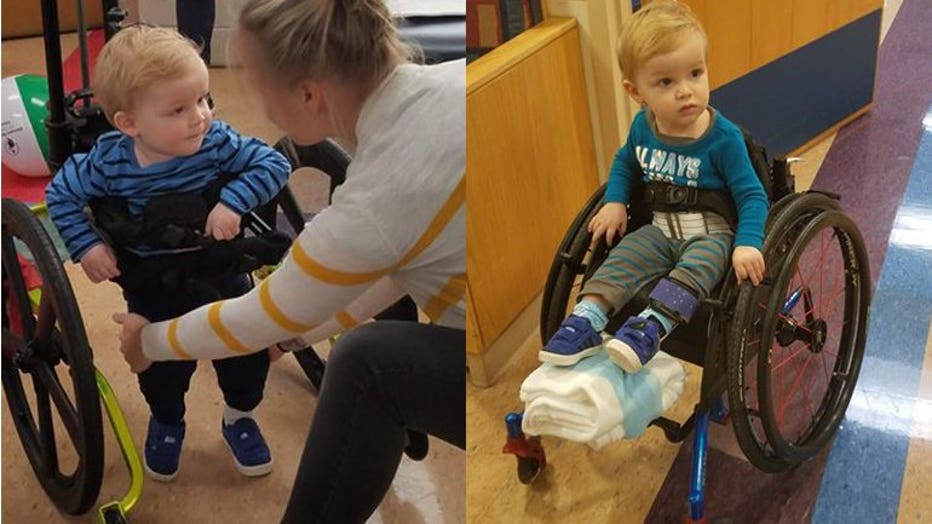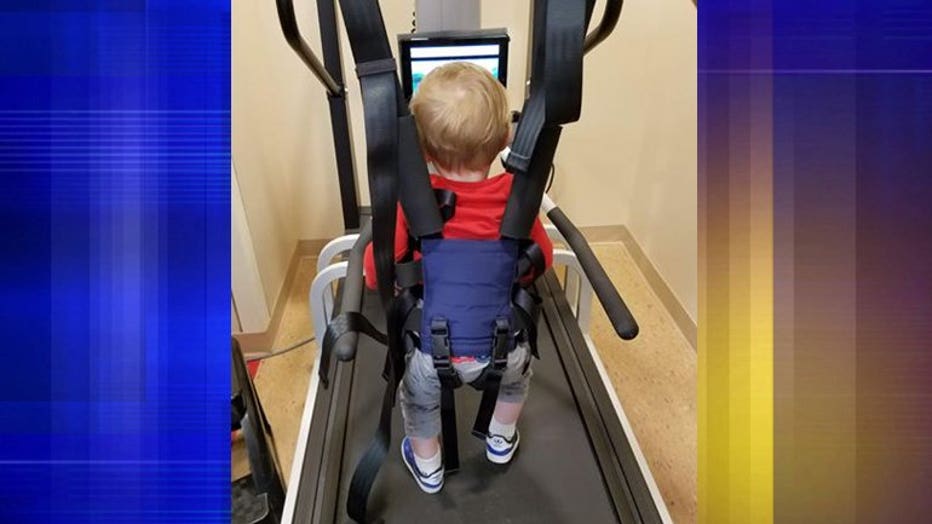'They all thought AFM:' Waukesha mom warns others of rare condition that left son partially paralyzed
WAUKESHA -- A rare condition prompted a Waukesha mother to give a warning to all parents. Her young son was diagnosed with AFM, Acute Flaccid Myelitis -- causing extreme weakness in limbs.
It was a fall day nearly a year ago when Jessica Hansen was tending to her son, Camden. He was one at the time, seemingly hit with a common illness.
“He had a cold, which seemed simple enough, but it was a cold that wasn’t going away," Hansen remembered.
The normally energetic toddler was running a fever. Pediatricians initially thought it was a sinus infection, but the next morning, it became apparent something was terribly wrong.
“I go to set him down, and he won’t stand," Hansen said. "Like, it wasn’t like he was refusing. It was like he couldn’t."

Hansen didn’t know what was happening. Camden appeared paralyzed. After several rounds of tests at their local hospital, the boy was transferred to Children’s Hospital.
“Several doctors came and looked at him and they all thought AFM, and I was like, 'What is that? I had never heard of it,'" said Hansen.
Acute Flaccid Myelitis is a rare condition that affects the nervous system. Dr. Matthew Harmelink, a pediatric neuromuscular specialist at Children’s Hospital of Wisconsin said in 2018 in Wisconsin, 10 patients were diagnosed with AFM. The cause -- unknown.

“There’s a thought that it might be predisposed to either an infection or after infection autoimmune reaction that happens,” explained Harmelink.
AFM generally only affects kids. Camden couldn’t move and had trouble swallowing.
“Not everybody who has a cold is going to have these symptoms,” said Harmelink. "But if someone notices that their child is having problems walking or breathing, or difficulty moving an arm or a leg after they are getting sick, that would be something to bring them in for.”

Camden stayed at Children’s Hospital for 12 days after he initially got sick. Hansen still didn’t know what an AFM diagnosis meant.
“So he’s hooked up to a feeding tube, and an IV, and frozen," said Hansen. "All he wanted was to be held. For hours and hours, I laid with him; held him for dear life. I didn’t know -- I didn’t know what was going to happen.”
With no known cause or preventative measures, what makes AFM even more concerning is the spike in cases. According to the CDC, AFM has come in waves every two years since 2014, typically between August and October. Hansen worried fall 2020 could see the largest number of cases yet.

Months of intense inpatient physical therapy and pioneering nerve transfers helped Camden regain upper body strength and some mobility in his right leg. Through a national AFM foundation and support groups, Hansen educated herself and others about the condition and has become an advocate for awareness.
“If you know these symptoms ahead of time, the faster you get these treatments, the less risk you’re going to be at -- hopefully," said Hansen.

CLICK HERE to access a GoFundMe.com account set up to raise money for Camden's medical bills.
CLICK HERE to learn more about AFM.

